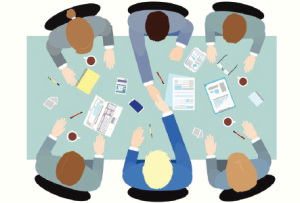 Is there such a thing as “smart” dispute resolution? You betcha! And here is why. What is the goal in representing a client in a dispute: resolution, of course, but the path towards the agreed upon result is the issue. How do we get there, and is the end result acceptable? Was value received in the sense that the cost of proceeding down the path, and the ultimate result, was done efficiently and effectively?
Is there such a thing as “smart” dispute resolution? You betcha! And here is why. What is the goal in representing a client in a dispute: resolution, of course, but the path towards the agreed upon result is the issue. How do we get there, and is the end result acceptable? Was value received in the sense that the cost of proceeding down the path, and the ultimate result, was done efficiently and effectively?
The key to “smart” dispute resolution, in my view, is proper litigation management: “The effective planning, organization, delegation and supervision of litigated matters so as to gain the advantage crucial to achieving an acceptable and timely resolution of the dispute.”
That is, make a plan. As a sometimes expert witness in civil litigation and insurance claims handling, I see cases run amuck with no real planning or oversight. There is no goal setting, no timeline, and no thought given to how to obtain the critical information about the facts. And often, the law is not carefully researched or applied to the facts at hand. So what constitutes “smart” dispute resolution?
First, make that plan. Go over the case, get the facts down, and analyze what you know based on the legal rules. Force yourself to put everything available together in an outline, and get a sense of what the case is about, what problems or issues present themselves, and what the client’s needs are. Then communicate this to the client so the client is aware of the merits of the case and what needs to be done to get resolution.
Second, evaluate what needs to be done in the discovery process to get you to a point of being able to sense the end result if the case is tried.
I have described well timed discovery as progressing to a “plateau” at which point enough has been done to be able to, a) evaluate the case, b) see what needs to be done, c) look at the costs of further proceeding, and d) evaluate the possible outcomes so that a cost/benefit and risk/reward analysis can be done.
Good mediating. . .
About the author:
Guy Kornblum is a partner at Kornblum, Cochran, Erickson & Harbison, with offices in San Francisco and Santa Rosa. He is a frequent CLE presenter, and has been a BASF Mediation Services mediator since 2003.





